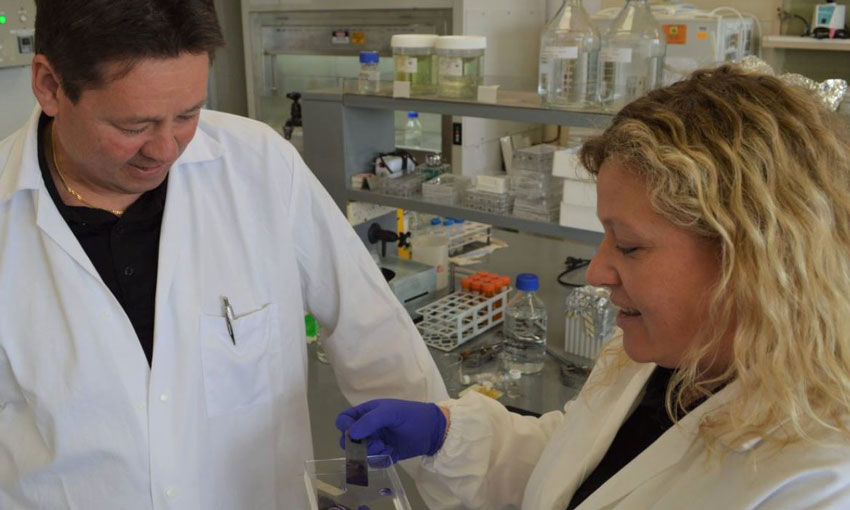A NEW $445,000 Australian Research Council Discovery Project led by Flinders University College of Science and Engineering experts is set to expand research into finding better coatings for the control and eradication of unwanted marine biofilms.
Flinders University Professor Mats Andersson and Associate Professor Sophie Leterme are to collaborate with co-investigators Associate Professor Christine Bressy and Associate Professor Jean-François Briand from the Laboratoire MAPIEM, University of Toulon, France where research efforts to develop a new generation of antifouling coatings is well under way.
“Unwanted biofilms grow on all surfaces and marine environments and they can lead to invasive pests and other environmental problems and costly eradication efforts,” Professor Andersson said.
“This project aims to develop novel electrically conducting carbon-based paints that are stable in marine environments, and at the same time green solutions for controlling the biofouling of surfaces immersed in our oceans.”
The ARC Discovery Project is to measure the effectiveness of this electrochemically generated redox stress and shear properties in new novel carbon-based paints, and how marine biofilms respond to them.
“This is an important new field of science that will create better and environmentally important solutions to many shipping and marine pollution and biosecurity issues that will help build a better future for our oceans,” says Associate Professor Leterme, director of the Biofilm Research Innovation Consortium at Flinders University, which is also looking at other environmental, industrial and medical biofilms.
“We are working with industries to develop innovative solutions that meet their needs and alleviate their biofilm related problems.”
Biofilms are 3D structures, made of a combination of different microbial species embedded within a protective extracellular polymeric substance matrix.

